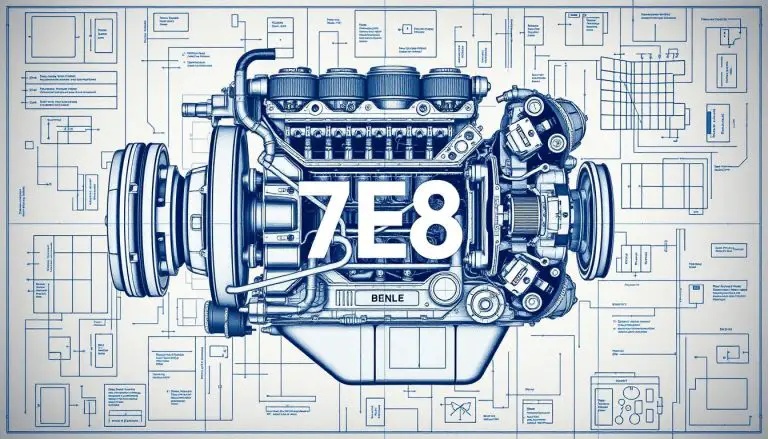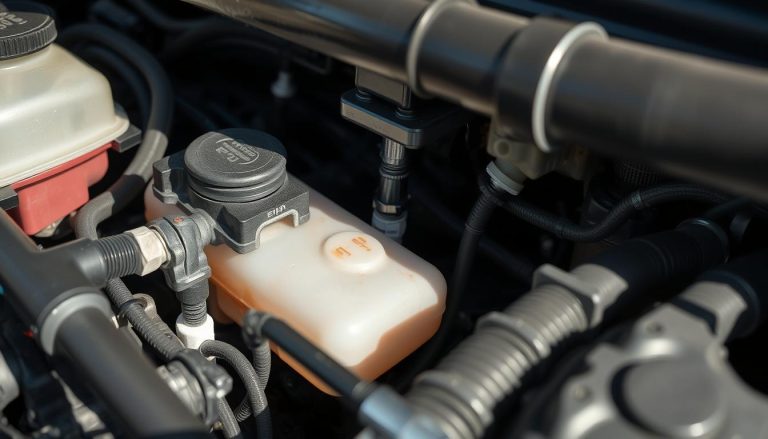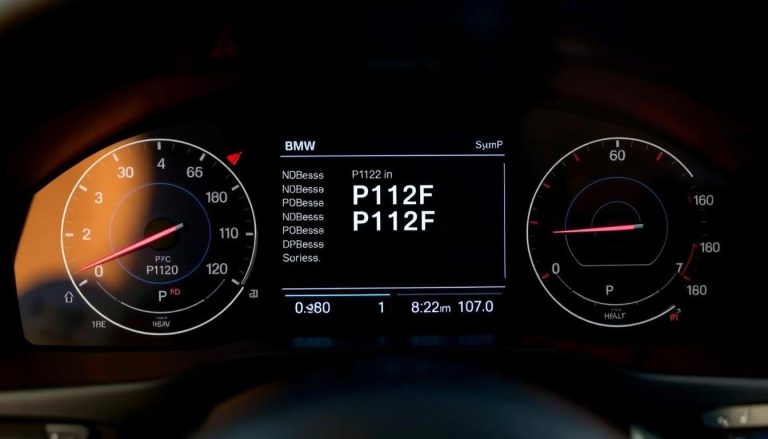Among the myriad of trouble codes that can pop up, one that might have caught your attention is the P0048 code. This enigmatic code pertains specifically to turbocharger and supercharger systems, signaling an issue with boost control.
But what does it really mean for your ride? Buckle up as we demystify the P0048 code, exploring its causes, symptoms, diagnostics, and solutions—all while ensuring you stay on top of your vehicle’s performance game!
What does the P0048 code mean?
The P0048 code is a diagnostic trouble code (DTC) that indicates a problem with the turbocharger or supercharger boost control circuit. Specifically, it refers to an abnormal signal being sent to the Engine Control Module (ECM), suggesting that the boost pressure is higher than expected.
When this code triggers, it’s often related to issues in how the vehicle’s forced induction system communicates. This can impact performance and efficiency, leading drivers to feel a noticeable change in their car’s responsiveness.
Understanding what this code signifies helps pinpoint potential areas needing attention. It’s crucial for maintaining your vehicle’s health and ensuring optimal driving experience. Ignoring such codes could lead not only to reduced power but also possible long-term damage if left unaddressed.
What are the possible causes of a P0048 code?
A P0048 code can arise from various issues, primarily linked to the turbocharger or supercharger boost control system. One common culprit is a faulty boost control solenoid. If this component fails, it won’t properly regulate pressure levels.
Wiring problems are another frequent source of trouble. Damaged wires or poor connections could disrupt communication between the engine control module and the boost control components.
In some cases, vacuum leaks may be at play. An air leak in the intake system can lead to incorrect readings and trigger the code.
Additionally, a malfunctioning turbocharger or supercharger itself might cause abnormalities in performance, leading to this error code being set. Keeping an eye on these factors is essential for proper diagnosis and repair down the line.
What are the common symptoms of a P0048 code?
When the P0048 code triggers, drivers might notice several telltale signs. A common symptom is a noticeable drop in engine performance. You may feel sluggish acceleration or unresponsive throttle input.
Another red flag is the illumination of the check engine light on your dashboard. This warning usually prompts further inspection to pinpoint underlying issues.
In some cases, you might experience unusual noises from the turbocharger or supercharger system. Whining or grinding sounds can indicate mechanical failure within these components.
Additionally, erratic boost levels could occur while driving. This inconsistency may lead to unexpected surges in power followed by sudden drops.
Fuel efficiency often takes a hit when this code is present. If you’re filling up more frequently without changes in driving habits, it’s worth investigating further.
What are the diagnostic steps for a P0048 code?
Diagnosing a P0048 code requires a systematic approach. Start by using an OBD-II scanner to confirm the code and check for any additional trouble codes. This can help identify related issues that may be contributing to the problem.
Next, inspect the wiring and connectors associated with the turbocharger or supercharger boost control system. Look for signs of damage, corrosion, or loose connections that could affect performance.
After visual checks, test the voltage and ground signals at relevant components while activating them through your diagnostic tool. Ensure everything operates within specified parameters.
If electrical tests are inconclusive, consider examining mechanical components like wastegates or actuators for proper functionality. A vacuum leak in hoses can also lead to incorrect readings.
If all else fails, consult manufacturer service manuals for specific tests pertinent to your vehicle’s make and model.
How serious Is the P0048 Code? Can I continue driving with the P0048 code?
The P0048 code indicates a problem with the turbocharger or supercharger boost control circuit. This issue can significantly impact your vehicle’s performance and efficiency.
Driving with this code present may lead to reduced power, sluggish acceleration, or even engine stalling in severe cases. Ignoring it could exacerbate underlying problems.
While some drivers may continue operating their vehicles, it’s not advisable. The potential for further damage increases over time. It’s best to address the issue promptly.
If you notice any related symptoms like unusual noises from the engine or warning lights on your dashboard, seek professional assistance immediately. Staying proactive is key to maintaining optimal vehicle health and safety on the road.
What are the repair solutions for a P0048 – Turbocharger/Supercharger Boost Control A Circuit High ?
Repairing the P0048 code requires a systematic approach to diagnose and resolve the underlying issue. Start by inspecting the wiring and connectors associated with the turbocharger or supercharger boost control system. Look for signs of wear, corrosion, or loose connections.
If electrical components appear intact, test the boost pressure sensor. A faulty sensor can send incorrect signals to the engine control module (ECM), triggering the P0048 code.
Another common solution is replacing a malfunctioning turbocharger or supercharger actuator. These actuators play a crucial role in regulating boost levels; any failure here can lead to high circuit readings.
Reprogramming or updating your vehicle’s ECM might be necessary if software issues are at fault. This step ensures that all components communicate effectively within their specified parameters.
How long and How much does it cost to diagnose and repair a P0048 code?
The cost and time required to diagnose a P0048 code can vary widely. Generally, expect to pay between $100 and $200 for a professional diagnostic service. This fee typically covers the technician’s expertise in identifying the underlying issue.
Once diagnosed, repair costs can range from $150 to over $1,000. Simple fixes like replacing damaged wiring may be on the lower end of that scale. More complex issues involving turbocharger or supercharger replacements will push expenses higher.
In terms of time, diagnosing this code usually takes one to two hours. However, repairs might take additional time depending on parts availability and labor demands. Always consult with your mechanic for an accurate estimate tailored to your vehicle’s specific needs.
How can I avoid a P0048 code?
To prevent a P0048 code from appearing, regular maintenance is key. Schedule routine check-ups for your vehicle. This includes oil changes and air filter replacements to keep the engine running smoothly.
Monitor your turbocharger or supercharger system regularly. Any signs of wear or damage could lead to issues down the line. Addressing minor problems early can save you time and money.
Use quality fuel that meets your vehicle’s specifications. Poor-quality fuel can affect performance, leading to potential codes like P0048.
Avoid aggressive driving habits. Rapid acceleration and hard braking put extra stress on components, increasing the risk of malfunction in boost control systems. Adopting a gentler driving style may help extend the life of your turbocharger or supercharger while keeping error codes at bay.
What happens if you ignore a P0048 code?
Ignoring a P0048 code can lead to several complications. The turbocharger or supercharger is crucial for engine performance. When this system malfunctions, it affects power delivery and fuel efficiency.
Over time, continuing to drive with this code may cause more damage. You might experience reduced acceleration and sluggishness during driving. The vehicle could struggle under load, making everyday tasks like merging onto highways challenging.
Additionally, unresolved issues could trigger other codes in the engine control module (ECM). These compounded problems often result in higher repair costs down the line.
Ignoring warning signs can also affect emissions systems. This could lead to failing an emissions test or facing hefty fines if regulations aren’t met.
In essence, neglecting a P0048 code invites unnecessary stress on your vehicle and wallet. It’s always wise to address these alerts promptly for peace of mind on the road.
Is the P0048 code specific to certain car makes or models?
The P0048 code isn’t confined to a specific make or model. It can pop up in various vehicles equipped with turbochargers or superchargers. Many manufacturers, including Ford, Volkswagen, and General Motors, have reported this issue across different models.
However, the frequency of occurrence may vary based on design and engineering choices. Some brands are more susceptible due to their reliance on forced induction systems.
It’s essential for car owners to stay informed about their vehicle’s particular quirks. Regular maintenance checks can help identify vulnerabilities before they lead to significant issues related to the P0048 code.
If you own a performance-oriented vehicle or one known for its boosting capabilities, keep an eye out for this trouble code. Awareness is key when it comes to prevention and timely repairs.
What other codes may be related to P0048?
When dealing with the P0048 code, it’s also important to recognize related diagnostic trouble codes that may surface. These can include P003A (Turbocharger/Supercharger Boost Control “A” Range/Performance Problem), P0299 (Turbocharger/Supercharger Underboost Condition), and P2279 (O2 Sensor Signal Stuck Rich).
These codes often indicate similar issues in the boost control system or air-fuel mixture problems. If you encounter a combination of these codes alongside the P0048, it’s essential to address them collectively for an effective repair strategy.
Understanding all potential fault codes can streamline your diagnosis and help mechanics pinpoint root causes more efficiently. Keeping an eye on any accompanying symptoms will aid in preventing further complications down the line, ensuring your vehicle runs smoothly and reliably.


